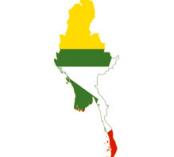
SITTWE, Myanmar — When the kicking stopped, Zura Begum suspected something was wrong with the twins she was supposed to deliver that month. When the pain started shooting through her body, all doubt was erased.
She needed help, but had nowhere to turn. She was trapped with thousands of other Muslim Rohingya in a squalid, dusty camp in western Myanmar’s Rakhine state.
The foreign aid workers she had relied on early in her pregnancy were gone — forced out by a distrustful government and extremist Buddhist mobs. Getting help outside the camps, in hospitals run by the Buddhist Rakhine majority, requires special permission that is harder than ever to obtain.
And there is one more obstacle: The fear that has grown over two years in which ethnic violence in Rakhine, mostly by Buddhist mobs against Rohingya, has left up to 280 people dead and forced another 140,000 from their homes. Rohingya worry Buddhist doctors and nurses will hurt or even kill them, though aid workers, now just beginning to return to Rakhine, say there is nothing to suggest that the rumors are true.
All those factors weigh on Rohingya who need medical attention — especially pregnant women like Begum. Her family said that instead of getting the treatment she and her twins needed, the 20-year-old lay at the camp in a “long house” — a shelter of bamboo and corrugated metal where multiple families live. Her mother stroked her hand and placed packs of ice on her huge belly between screams.
The full article continues at http://www.washingtonpost.com/world/asia_pacific/lack-of-health-care-deadly-for-myanmars-rohingya/2014/05/02/1a4d47a0-d1cc-11e3-a714-be7e7f142085_story.html on The Washington Post’s website.

